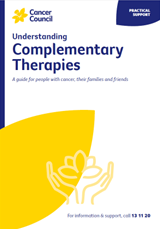Acupuncture
What is it?
Acupuncturists put fine, sterile needles just under the skin into energy channels called meridians, which are said to regulate energy flow. Each meridian has many acupuncture points along its path.
Why use it
Acupuncture is based on the theory that the placement of needles into certain points of the body unblocks and moves qi (vital energy) to strengthen and reduce physical and emotional symptoms. Research suggests that the needles stimulate the nervous system and the connective tissue in the body, and help the body produce certain biomolecules such as hormones.
What to expect
After a consultation, which may include tongue and pulse analysis, the practitioner gently positions sterile needles into acupuncture points on your body.
The needles are left in place for 30 seconds to 30 minutes, and may be stimulated manually by twirling or by using a machine (called electro-acupuncture). You may feel a tingling or dull aching sensation, but should not feel pain.
Acupuncturists may also implant and cover special needles called press needles, which can remain in place for several days. Some acupuncturists use laser light instead of needles to stimulate acupuncture points (laser acupuncture).
Some people may bruise or bleed around the insertion point. Check with your doctor whether acupuncture is suitable for you, as penetration of the skin barrier by needles may increase the risk of infection or bleeding for some people having cancer treatment.
What is the evidence?
Clinical guidelines recommend acupuncture for joint pain related to using aromatase inhibitors, and include it as an option for managing cancer pain, musculoskeletal pain, chemotherapy-induced tingling in the hands and feet (peripheral neuropathy), cancer-related fatigue and hot flushes.
Evidence suggests acupuncture may also help with chemotherapy-related nausea and vomiting, sleep disturbance and anxiety. It’s not clear whether it helps relieve dry mouth, but several studies are underway.
In Australia, use of the term acupuncturist is regulated by AHPRA and the Chinese Medicine Board. Visit the Chinese Medicine Board to check your acupuncturist is registered. Some registered acupuncturists in Australia have special training in treating cancer-related conditions. Ask your doctor whether acupuncture is offered at your treatment centre.
Meditation and Relaxation Podcast
Listen to more of our meditation and relaxation podcast for people affected by cancer
More resources
Dr David Joske, Clinical Haematologist, Sir Charles Gairdner Hospital and PathWest, Chairman and Founder Solaris Cancer Care Foundation, Clinical Professor of Medicine, The University of Western Australia, WA; Australasian Integrative Medicine Association (AIMA); Dr Robert Blum, Clinical Director, Cancer Services, Bendigo Health, NSW; Sally Brooks, Senior Pharmacist, Medicines Information, Peter MacCallum Cancer Centre, VIC; Dr Suzanne Grant, Senior Research Fellow, NICM Health Research Institute, Western Sydney University, and Chris O’Brien Lifehouse, NSW; Prof Danforn Lim, Adjunct Professor and Advisory Board Member, NICM Health Research Institute, Western Sydney University, and Adjunct Professor, UTS, NSW; Christina Line, Statewide Services Senior Coordinator, Cancer Council WA; Jen McKenzie, Physiotherapist (Lymphoedema) and ESSA Accredited Exercise Physiologist, The McKenzie Clinic, QLD; Simone Noelker, Wellness Centre and Pastoral Care Manager, Ballarat Regional Integrated Cancer Centre, VIC; Dr Nirzari Pandit, General Practitioner, RACGP Specific Interests Integrative Medicine Group, NSW; Georgie Pearson, Consumer; Cris Pirone, Counsellor, Cancer Council SA; Dr Elysia Thornton-Benko, Specialist General Practitioner, and UNSW Research Fellow, NSW; Kirsty Trebilcock, 13 11 20 Consultant, Cancer Council SA.
View the Cancer Council NSW editorial policy.
View all publications or call 13 11 20 for free printed copies.

